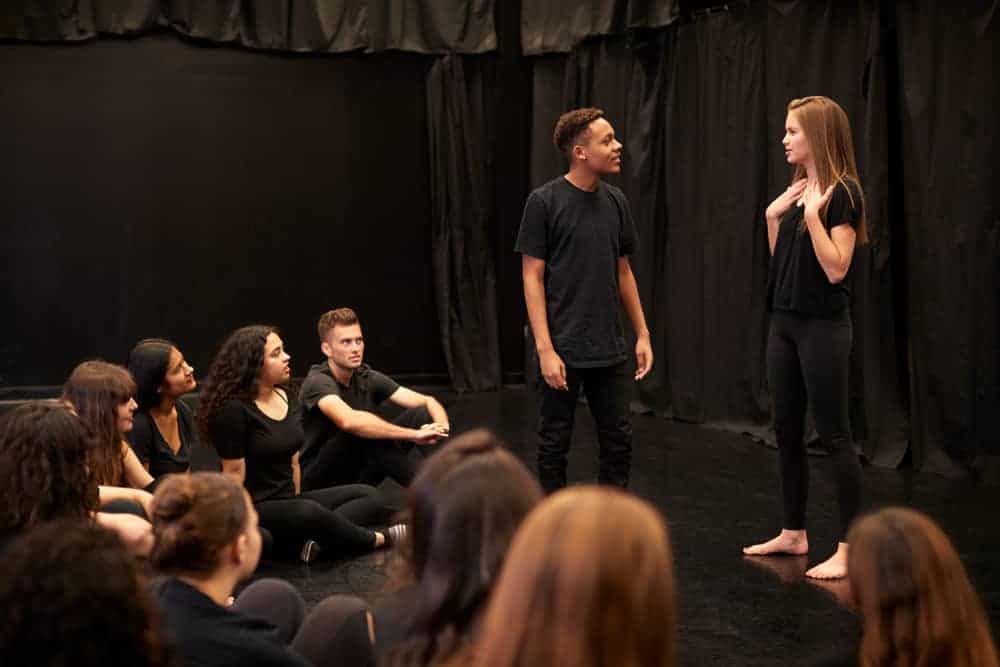Participating in extracurricular activities is an important step for exploring interests outside of regular academic work. Apart from learning new things that you might like, they also play a key role in getting accepted into college. With the myriad of options available, it’s not always the easiest choice for high school students to figure out which ones they should participate in.
It’s also not always very clear what exactly is an extracurricular activity either. Here we cover seven of the best extracurriculars that can significantly aid in a students personal development and improve their college application resume. There is also a section on why they are important and how a high school student should choose one that suits them the most.
What Are Extracurricular Activities?
Extracurricular activities are non-educational activities that you do outside of school hours. These activities rarely contribute to high school grades but are good for your self-development. Examples of extracurricular activities include sports, volunteering, public speaking, community service, and artistic pursuits like painting or playing an instrument like the piano. For helpful coures, read this guide on piano classes for children.
Not every non-educational activity counts as extracurricular, especially activities done for personal recreation. That means reading crime fiction or playing video games cannot be listed under the extracurricular section of your resume.
So, what counts as an extracurricular activity?
Good extracurricular activities are those that contribute to your development. For example, binge-watching Netflix might not be too helpful. But if you started a movie review blog, then your writing and critical skills would improve with practice (although this may not have a huge impact on your college application).
Extracurricular activities require commitment and focused action, which separates them from hobbies. You can pick up new hobbies anytime, but admissions officers expect to see some commitment to a few select activities.
Why Are Extracurricular Activities Important?
Displays your interests
The extracurricular activities you choose show your general interests outside academics. Colleges and universities want diverse student communities, and having richly varied interests can appeal to admission officers and help you get into your dream schools.
A filled extracurricular activities section shows you’re interested in more than getting good grades. It means you’ll be active within the school community upon admission, which is what college boards want out of students.

Shows your personality
Your extracurricular activities paint a picture of your personality to admissions boards. It tells them who you are, what you care about, and what causes you consider necessary.
Colleges, especially ivy league universities, receive excess college applications yearly from academically brilliant students. When it comes to choosing between candidates, understanding their unique personalities eases the process. That’s why selecting extracurricular activities to show your uniqueness is vital.
Displays your commitment to a field
Top colleges with highly competitive programs will want to admit candidates with an extraordinary commitment to their majors. They might look at your extracurricular section to know if you took part in activities related to your chosen field.
For example, a medical school might consider volunteering at a local hospital as proof of sustained interest in the field. Another outstanding example is if you wrote for the high school publication and plan to study journalism.
Highlights your soft skills
You can have perfect GPA test scores, but these are only markers of your academic abilities. They say nothing of your leadership ability or willingness to collaborate with others — which are qualities admissions officers prize.
The right mix of extracurricular activities can help highlight qualities or soft skills in your application. For example, sustained participation in team sports shows that you can work in a team and contribute to collective success. Similarly, serving as a high school student body president is proof that you’re not afraid to lead and make a positive impact.
How To Choose Extracurricular Activities
Before choosing extracurricular activities, try to answer the following questions:
- What are your interests?
- What causes are you passionate about?
- What activities can you stick with long-term?
Thinking on these questions will help give you some direction concerning what activities to pick. That said, here are some things you should know about choosing extracurricular activities:
Play to your strengths
It makes sense to pick an extracurricular activity that plays to your strengths. As an example, you might have difficulties with public speaking if you cannot express yourself. However, you might be better at written communication, which would make joining the school newspaper a good idea.
You can still choose an activity, even if it’s not one of your strong suits. With enough commitment, dedication, and practice, you’ll get better at it. Plus, it might be better to face your weaknesses in high school than to take them head-on in college. Pursuing traditional extracurricular activities is a great way to gain leadership skills and confidence.
Don’t stack activities
Some ambitious students try to select too many activities to improve their profiles. They join different societies, academic clubs, sign up for social impact programs, and play one too many sports.
This often achieves the opposite of its intended effect. Not only can it cause unnecessary stress in your life if you have too much on your plate, but it can also impact your grades and test scores.
Instead of collecting extracurricular activities like postcards, pick a few activities and stick with them. That shows admissions officers that you are dedicated to these extracurricular activities. Focus on quality over quantity to ensure you don’t overload on school work.
Avoid selecting based on popularity
Not all extracurricular activities are equal. Some have more mass appeal and receive more attention. These often have entire organizations built around them — think debating, coding, math, and other prestigious activities.
However, it’s a mistake to choose an activity on account of its popularity alone. You should only do something if it’s exciting to you or you’re passionate about it. Otherwise, you’ll find it hard to muster the will to remain committed. For example, playing the piano might not be too popular, but it will certainly help your college resume if you win a piano competition.
Best Extracurricular Activities To Choose
Debate
Debate has been the perfect extracurricular activity forever. It’s no secret that membership in a debating club can raise your admission prospects.
Preparing for debates is hard work, and only those committed and passionate about the art stick with it. Admission boards understand this reality, which is why debating gets prestige.
However, debating is more than a route to college admission. Active debating will help develop in different areas of life — academic, professional, and elsewhere.
From debating in teams, you learn teamwork and collaboration. Also, arguing requires the ability to research information and organize information. These are all skills that come in handy in future professional and academic roles.
Most high schools have a debate team, so getting started is easy. With quality training, you’ll grasp the basics and start competing in tournaments. One way to ensure your success at it is by enrolling in a debate program during the school break.
STEM Programs

In recent years, public focus on STEM education in schools has increased. However, high schools still lack funds to equip labs or purchase required learning resources.
STEM programs are initiatives aimed at improving access to education in core areas like math, science, engineering, and technology. Examples include coding classes, after-school clubs, or STEM summer camps like Stanford’s Medicine Summer Research Program or NASA’s Summer of Innovation program.
Asides from looking good on an application, joining a STEM program can speed up your learning in these key subjects. Learning takes place in a relaxed environment where students can experiment and innovate. It can even help your test prep for any of your science classes.
Good summer programs provide opportunities for practical problem-solving. Besides, they’re fun and engaging — which makes learning easier and more enjoyable. If you don’t have any STEM programs near you, joining an academic club like the math club is a great way to stand out.
Sports
Sports are excellent extracurricular activities for many reasons. First, playing a sport increases your chances of staying fit and healthy. Plus, it’s fun, and you can physically and mentally improve yourself at the same time.
Being part of a sports team teaches you teamwork and how to cooperate with others, even those you might not get along with. Maintaining a stellar academic record while playing for the team proves you have good organizational and time management skills.
You can choose a team sport like soccer or an individual ones like chess. However, ensure this is something you love doing — or you’ll grow tired. If you show leadership skills out in the field, you might even manage to become captain of your team. This is an excellent thing to feature in your college resume.
Creative Arts
The creative arts offer many sub-fields which you can turn into a regular extracurricular activity. This includes visual arts like painting, photography, craft making, or performing arts like music, dance, drama and community theater.

Arts-based extracurricular activities improve cognitive skills, such as critical thinking and problem-solving. These activities also help you develop essential life skills, including self-discipline, leadership, self-confidence, and self-esteem.
If your high school has a club dedicated to any of these creative arts, try to join it. You can even create one yourself if the school doesn’t have an existing one.
Volunteering
If you’re passionate about making the world a better place, then you should volunteer in your free time. A track record of volunteering and community service will attract the attention of college recruitment officers and improve your admission chances.
Volunteering is an ideal extracurricular activity because getting started is easy. Any unpaid service provided to help those in need counts as volunteering.
You can work at the local soup kitchen to feed the homeless or gather used clothing for low-income households. You can even volunteer online and help tutor children. If fighting climate change is a personal priority, you can collaborate with a local organization to plant trees.
You can choose anything but avoid volunteering solely for the sake of your college admission process. That only defeats the purpose and ruins volunteering for those genuinely interested in helping the needy.
Student Government
Including your participation in student government on an application can help distinguish you from other candidates. It shows that you have trained your leadership skills and can provide effective leadership during your stay on campus.
To earn an appointment, you need to get elected by other students or volunteers. Student governments are usually responsible for protecting student interests and organizing student events. You can be part of your high school’s spirit week committee or even help plan prom.
Holding a position in student government in high school also helps prepare you for future political activities. High school politics mirrors real-life politics, so you’ll have plenty of practice to hone your skills if you want a future career in politics. Leadership roles in this club is an excellent way to impress an admission officer.
If your child is on the younger side, read this guide for ideas on after school activities.

Leave a comment